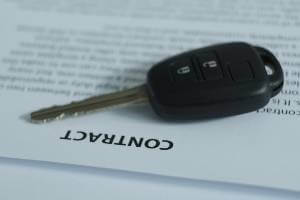Why Speeding is a Factor in Many Minnesota Car Crashes
 Speeding kills thousands of people on U.S. roads every year. In 2019, an average of more than 25 people per day were killed in traffic crashes involving speeding. More than one-quarter of the total traffic deaths that year were caused by crashes in which speeding was a factor, according to statistics compiled by the National Safety Council.
Speeding kills thousands of people on U.S. roads every year. In 2019, an average of more than 25 people per day were killed in traffic crashes involving speeding. More than one-quarter of the total traffic deaths that year were caused by crashes in which speeding was a factor, according to statistics compiled by the National Safety Council.
Speeding is a factor in a crash if the driver was cited for a speeding-related traffic offense, was driving too fast given the conditions, or exceeding the posted limit.
Our licensed attorneys explain the dangers of speeding and why it often makes a crash much more likely to happen. We also discuss some ways you can reduce your risk of a crash involving speeding drivers.
If you were injured in a crash caused by speeding, give our firm a call today to learn how our Minneapolis auto accident attorneys may be able to assist you. The damages caused by these crashes are often catastrophic and victims who do not retain a licensed attorney often struggle to recover all the compensation they may need.
Why is Speeding So Common?
There are a lot of behaviors and bad habits that people know are dangerous, but they engage in them anyway. Smoking cigarettes is a prime example, as there is so much evidence smoking can have severe or even life-threatening consequences.
People also know speeding is a bad idea, but they still do it, often on a regular basis. There are various reasons why. However, it is important to remember drivers are making a conscious decision to speed, or at the very least, not slow down when they realize they are exceeding the speed limit.
Common reasons drivers speed include:
- Running late on a commute to a job, school or an event that starts at a specific time, such as a concert, sporting event or a movie
- Being distracted by something and ignoring the speedometer; common distractions include texting while driving, talking to passengers, fiddling with the stereo, eating or drinking.
- Being angry at being stuck in traffic – once traffic clears and drivers have more room they often speed to make up for the time they lost while they were stuck in traffic
- Being under the influence of drugs or alcohol often causes drivers to engage in reckless behaviors, like speeding
- Complete disregard for any traffic laws, which means they constantly break traffic laws and speed, even in places with low-speed limits, such as parking lots and neighborhoods
- Feeling like they can get away with it because they feel less constrained being inside a car
- Lacking driving experience, which may result in speeding without realizing it
- There are more drivers on the road driving more miles than ever before
Exceeding the speed limit is a negligent behavior, and not just because it is against the law. Speeding is irresponsible because it makes it easier to lose control of your vehicle and gives you less time to react to avoid a crash.
You are obligated to follow traffic laws and operate your vehicle in a reasonably safe manner to help prevent injuries to yourself and others you are sharing the road with. Even though drivers may feel detached from others because they are in a car, they must consider others when making decisions about the operation of their vehicle.
Why Does Speeding Make a Crash More Likely to Occur?
Despite alarming statistics and warnings about the dangers of exceeding the speed limit, many people still do not understand the risks involved.
Below, we discuss why speeding can greatly increase your risk of a crash:
- Higher risk of losing control of your vehicle – The faster you go the harder it is to maintain control of your vehicle. If you are speeding and you move the steering wheel just a little too much, you could start to lose control. If you jerk the steering wheel while you are speeding, your car could start to spin or even rollover. Rollovers are particularly common in larger vehicles with a higher center of gravity, like SUVs and large trucks. Small mistakes are magnified when you are speeding. A small mistake at a slower speed is often much easier to correct.
- Increase in stopping time – The faster an object is moving, the longer it will take to stop. When you speed, you are giving yourself less time to stop as you approach a dangerous situation on the road. No matter how hard you press down on the brakes, you may not have enough time to stop to avoid danger. That is why speeding drivers often cause rear-end crashes. They run out of time to stop to avoid hitting the bumper of the car in front of them.
- Increased risk of a rollover crash – Speeding on a turn is never a good idea, but it is an especially bad idea in a taller vehicle like an SUV or crossover. Speeding while turning in one of these vehicles could cause the vehicle to tip in the opposite direction of the turn.
- Less control in bad weather – No matter how fast you are going, controlling your vehicle in bad weather is going to be more difficult. Speeding just makes things even more dangerous. Your tires are going to have more trouble maintaining traction in rain or snow. Speeding only makes this problem worse. It is important to give yourself more time to react in bad weather, particularly because there are other negligent drivers who could make things more dangerous.
What Can You Do to Avoid Speeding Drivers?
Sometimes it is impossible to avoid a crash with a reckless driver. You could end up in a crash through no fault of your own. Fortunately, there are some preemptive steps you may be able to take to lower your risk of a crash with a speeding driver.
- Watch for negligent drivers – It is incumbent on you to be aware of your surroundings and the drivers surrounding your vehicle. Noticing a negligent driver may give you the time you need to move away and potentially avoid a crash.
- Move away from drivers who are speeding – You can either slow down or try to change lanes to move away from a driver who is speeding. If a speeding driver is behind you, change lanes to allow him or her to pass.
- Avoid eye contact – It is important to avoid eye contact with negligent drivers, particularly those who look angry. Eye contact could make the driver even angrier and lead to a road rage incident.
- Call the police to report reckless drivers – If you see a reckless or speeding driver, and you can get the license plate as the driver passes, call the authorities. They may be able to pull the driver over and issue a citation. Getting the driver off the road even for a few minutes could help prevent a crash.
Injured by a Negligent Driver? Give TSR a Call Today
For more than two decades, our firm has been helping car crash victims secure compensation to help them put their lives back together. We helped many crash victims reach favorable settlements with insurance companies and have also taken many cases to court to secure the justice and compensation our clients were seeking.
There are no upfront fees or obligations with our services. Our attorneys are not paid for representing you unless you are compensated.
TSR Injury Law is here to help crash victims. Call (612) TSR-TIME.


 When a jury reaches a verdict in a car crash case, one of the two parties involved is bound to be unhappy. While crash victims will be unhappy if the jury does not award them compensation or awards them less than they would like, insurance companies will probably be unhappy if they are required to pay out any compensation.
When a jury reaches a verdict in a car crash case, one of the two parties involved is bound to be unhappy. While crash victims will be unhappy if the jury does not award them compensation or awards them less than they would like, insurance companies will probably be unhappy if they are required to pay out any compensation. If you file a claim for compensation for personal injury damages, you must provide proof that you suffered an injury that resulted in damages. That means you are going to need medical records from one or more of your doctors that diagnose your injuries and their severity.
If you file a claim for compensation for personal injury damages, you must provide proof that you suffered an injury that resulted in damages. That means you are going to need medical records from one or more of your doctors that diagnose your injuries and their severity. Car crashes can cause serious disruption to victims’ lives. In addition to the injuries victims may suffer, they may lose income because they are unable to work for a few days or longer.
Car crashes can cause serious disruption to victims’ lives. In addition to the injuries victims may suffer, they may lose income because they are unable to work for a few days or longer.